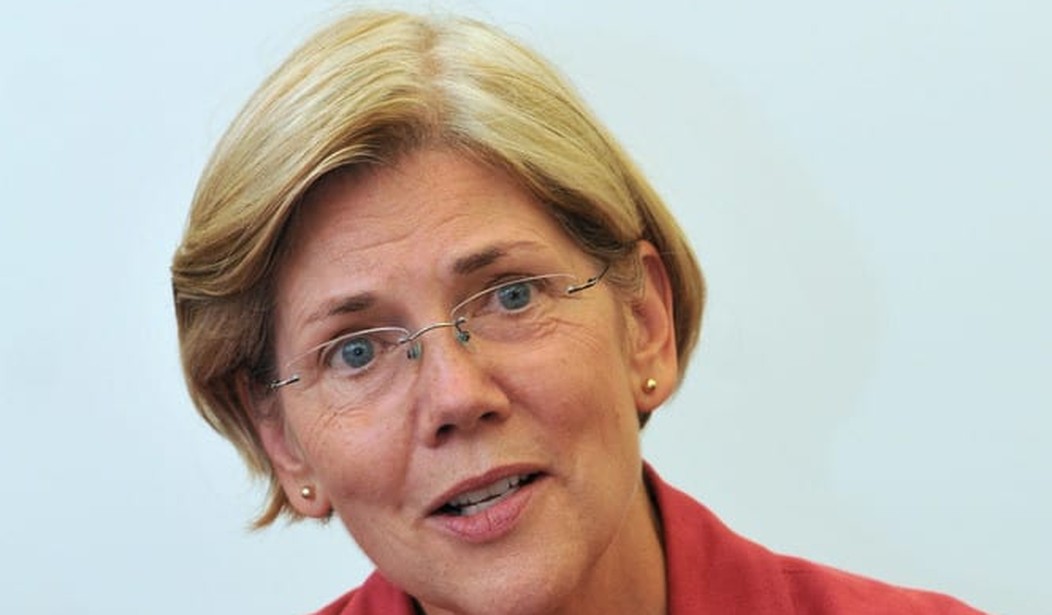In politics, the mere mention of the Bay State is enough to raise the hackles of any self-respecting conservative. It is, after all, the wellspring of modern liberalism, home to some of the biggest names in liberal politics: Kerry, Dukakis, Frank, and, of course, Kennedy.
Add to that list a new name: Warren. As in, Sen. Elizabeth Warren, the first-term Massachusetts liberal and rising star among the progressive wing of the Democratic Party. She has been hailed as a possible 2016 presidential contender among some on the left. Yet Warren has also become a lightning rod for criticism from conservatives who say she represents no less than a new breed of tax-and-spend, entitlement-rich uber-liberals in the mold of President Barack Obama. Her rise to national prominence has even led some critics back home to dust off the state’s old nickname, “Taxachusetts.”
So she may seem at first blush an odd choice to campaign for Democrat Natalie Tennant in this year’s Senate race in West Virginia — which has become as anti-Obama and anti-liberal as any state in the nation right now. Tennant, the Mountain State’s 46-year-old secretary of state, faces Republican U.S. Rep. Shelley Moore Capito, 60, in the race to succeed retiring Sen. Jay Rockefeller (D-W.Va.).
Warren, 65, is scheduled to campaign with Tennant in West Virginia in mid-July. Aligning herself with a Northeast liberal — especially one from Massachusetts — is of course a risk for Tennant, analysts say.
In many ways, West Virginia is the political polar opposite from Massachusetts. While Democrats still outnumber Republicans on the registration rolls in the Mountain State, West Virginia has been turning red at an ever-quickening pace in the last decade. Bill Clinton was the last president to win the state, in 1996. In 2012, Obama failed to win a single one of West Virginia’s 59 counties — yet won all of Massachusetts’ 14.
Sure, both states — like the other 48 — have their rich and their poor. The gritty self-reliance of West Virginia’s coal miners no doubt runs just as deep in the blue-collar swordfishermen toiling away at sea 800 miles to the northeast.
But the overall cultural divide runs deep between the two states. West Virginia’s hardscrabble, coal-driven existence is light years away from the privileged shores of Martha’s Vineyard and the blueblood streets of Boston. More to the point, West Virginia, one of the poorest states in the nation, has developed a deep-seated mistrust of the federal government, and especially Obama, that hasn’t taken root in the relatively wealthier quarters of Massachusetts.
“We don’t like Obama. Period,” a man from Pendleton County said at a garage sale in Franklin last weekend. A postal worker, the man did not want to give his name for fear he might lose his job for speaking to the media. “And Elizabeth Warren, she’s a carbon copy of him. Heck, if she wants to come down here, that’s fine, she’s welcome to it. But she’s not going to win over too many people.”
Tennant says she doesn’t see eye to eye with Warren on everything, especially the Environmental Protection Agency’s carbon emissions plan, which she opposes and Warren supports. The plan, energy trade groups say, would be devastating to the West Virginia’s coal industry and would jack up home heating prices on low-income residents.
The Capito campaign says the upcoming Warren visit shows Tennant’s true colors.
“Inviting Elizabeth Warren to campaign with her in West Virginia is further proof of whose side Natalie Tennant is really on,” Amy Graham, a spokeswoman for Capito, said Tuesday. “Elizabeth Warren is anti-coal, anti-gun, anti-business and pro-Obamacare. Everything she stands for is completely at odds with the West Virginia values Natalie Tennant claims to put first.”
But Tennant, who trails Capito by as much as 11 points in some polls, hopes Warren’s fight for additional Wall Street controls will resonate more with voters in recession-plagued West Virginia than the senator’s support of the EPA will.
“This campaign is a clear choice between the West Virginia values I represent and the Wall Street dollars Congresswoman Capito represents,” Tennant said in a statement. “West Virginia’s working families and college students deserve a senator who will speak up for them.”
In a statement, Warren added: “[I] have seen Congresswoman Capito in action on the House Financial Services Committee, and time and again I have seen her side with powerful financial interests overworking people.”
Tennant has made much of Capito’s ties to the financial services industry. The Republican’s list of top donors includes such Wall Street heavyweights as Citigroup, Goldman Sachs and BNY Mellon, along with Minnesota-based TCF Financial.
Capito has countered that Tennant has taken money from “anti-coal” groups around the country, making much of the Democrat’s trip to a California fundraiser earlier this month.
Tennant is clearly aware, analysts say, of the risks of bringing in a polarizing figure such as Warren. In some ways, though, she has no choice — especially given her failure to close the gap with Capito in the latest polls.
“An underdog has to try everything, even if there is risk of a backlash, because the Democrats need to shake up the race,” says Stephen J. Farnsworth, a professor at the University of Mary Washington in Fredericksburg, and director of the school’s Center for Leadership and Media Studies.
And, he said, the visit by a national figure such as Warren visit might just help Tennant rally the party faithful.
“Elizabeth Warren’s populist appeal harkens back to the way Democrats used to win the state in the past,” Farnsworth said. “She might enable the party to shake up the state.”
(For complete 2014 midterm coverage, get your campaign fix on The Grid.)









Join the conversation as a VIP Member